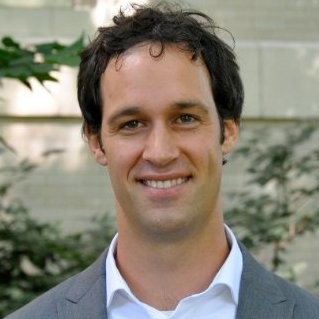
Mark A. Sentesy
- Courses4
- Reviews8
- School: DePaul University
- Campus:
- Department: Philosophy
- Email address: Join to see
- Phone: Join to see
-
Location:
2400 N Sheffield Ave
Chicago, IL - 60614 - Dates at DePaul University: October 2012 - November 2013
- Office Hours: Join to see
Biography
DePaul University - Philosophy
Resume
2013
Boston College
Co-taught with Amelie Rorty a course on Ancient Greek Ethics.
Boston University
Taught courses on Logic and Critical Thinking
and on the relationship between morality and our concept of the self
culminating in a challenge to my students to take full responsibility for what happens in the world.
Boston College
Visiting Lecturer
Taught courses on existentialism
the ethics of economic systems
and basic issues that obstruct fully engaged intellectual debate. Mentored students.
DePaul University
The Pennsylvania State University
University Park
Assistant Professor
2004
Doctor of Philosophy (PhD)
Philosophy (History and Philosophy of Science)
Boston College
2003
Study Abroad for Bachelor of Arts (B.A.) and Master of Arts (M.A.) degrees.
Philosophy
Katholieke Universiteit Leuven
1998
French
Greek
Ancient (to 1453)
Spanish (reading)
English
German (reading)
Bachelor of Humanities
Philosophy
Carleton University
Honours
Philosophy
Telemark Skiing
Critical Theory
Philosophy Of Technology
Phenomenology
Acoustic Guitar
Environmental Issues
Thought Leadership
Ancient Philosophy
Soccer
Business Ethics
Rhetoric
Photography
Microsoft Office
Leadership
Philosophy Of Science
Canoeing
Academic Writing
Writing
Ethics
On the Many Senses of Potency According to Aristotle
According to Aristotle
potency and energeia (being-at-work
operation
activity
actuality) are both the same and different. To understand exactly how they are the same
it is necessary to examine the different meanings or kinds of potency and the relationship between them
which I do in this paper.
On the Many Senses of Potency According to Aristotle
Jon Burmeister
In each part of this thought-provoking volume on the nature of language
there are essays that demonstrate the immense intellectual potential of writing that refuses to see any decisive distinction between the present of philosophy and its history
or between the ways in which Kant's work has been inherited in Anglo-American and Franco-German traditions. --Stephen Mulhall
New College
Oxford University
author of Wittgenstein's Private Language\n\nThe contributions to this impressive volume ignore traditional divides between analytic and continental
historical and systematic philosophy. This enables the authors to put a number of key issues in the philosophy of language into a striking new light.... Fully accessible to the advanced undergraduate in philosophy
the book also contains many provocative ideas for the specialist. --Martin Kusch
University of Cambridge
author of Language as Calculus vs. Language as Universal Medium\n\nWith its robust range of complementary topics
each subjected to penetrating examination
this collection of essays makes a welcome contribution to the philosophy of language
past and present --Daniel Dahlstrom
Boston University
author of Heidegger's Concept of Truth\n\nSince most inquiries into language remain enclosed in their own methodology
terminology
and tradition
the multiplicity of approaches is often accompanied by their mutual isolation. This book shows that these traditions can
however
speak meaningfully to each other on language: rather than preventing dialogue
their differences provide opportunities for fruitful inquiry. This book fills a gap in current scholarship by bringing together nine essays that
through rejecting the debilitating yet often unquestioned divisions between disciplines
are able to illuminate the fundamental nature of language.
On Language: Analytic
Continental
and Historical Contributions
In the Theaetetus Plato has Socrates suggest an astonishing thesis for testing: is speech meant to be a model for the structure of being? The thesis has been influential in the history of philosophy
and is difficult to avoid when one argues that thinking or science occur in speech. Still
the thesis--both its usefulness and its problems--give us a vivid contrast with an account of beings underlying modern exact and mechanistic science.
Structures and Ethics of Technology
By changing the medium or infrastructure of our actions and relationships
technology and economic systems change the medium of ethical experience and action. Despite their overwhelming importance in contemporary life
they have attracted an astonishingly small amount of systematic high level study
just when it became more important than ever. I aim to contribute to the existing discussion and hopefully to broaden it as well.
Sentesy
Mark
Sentesy
Boston University
The Pennsylvania State University
DePaul University



